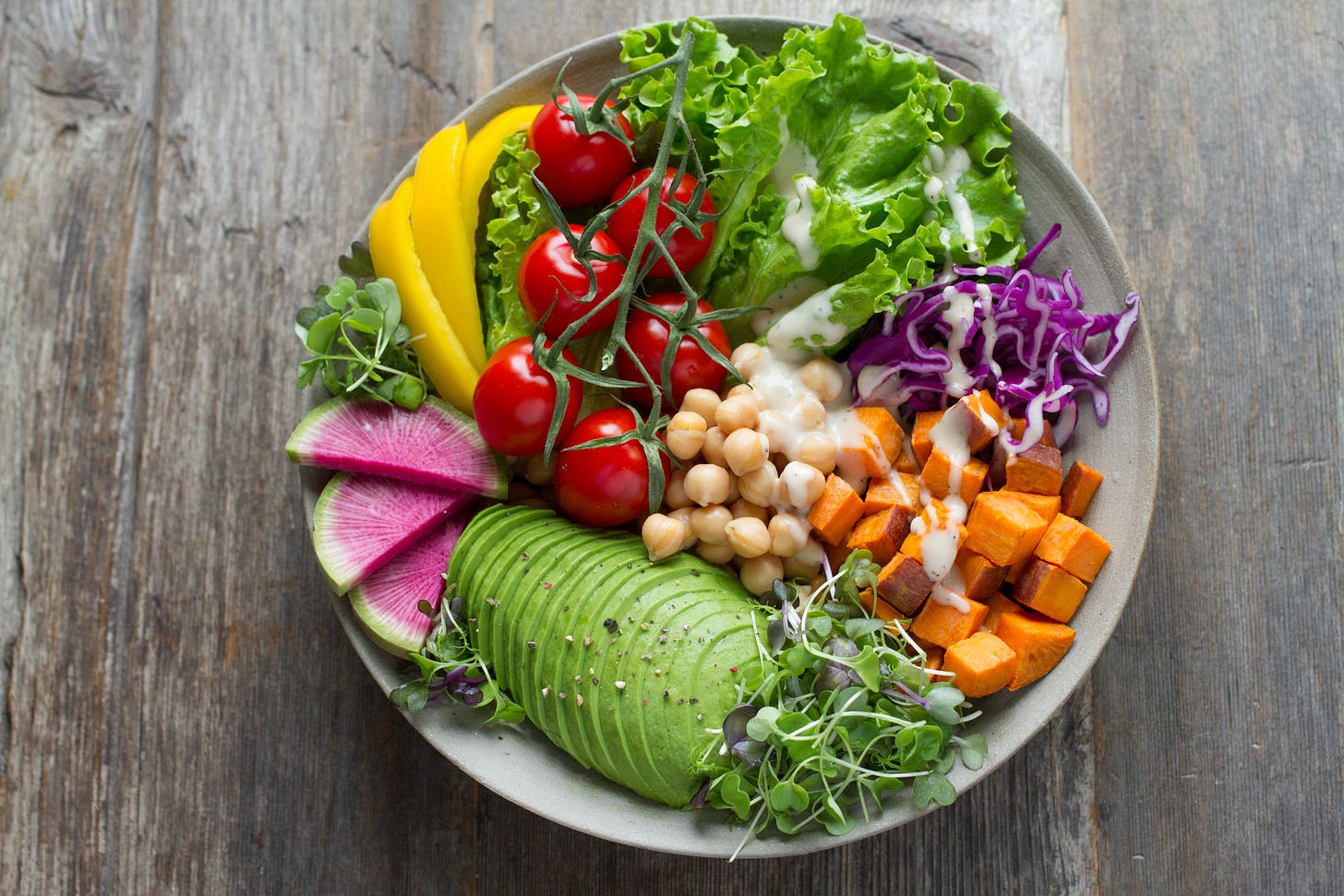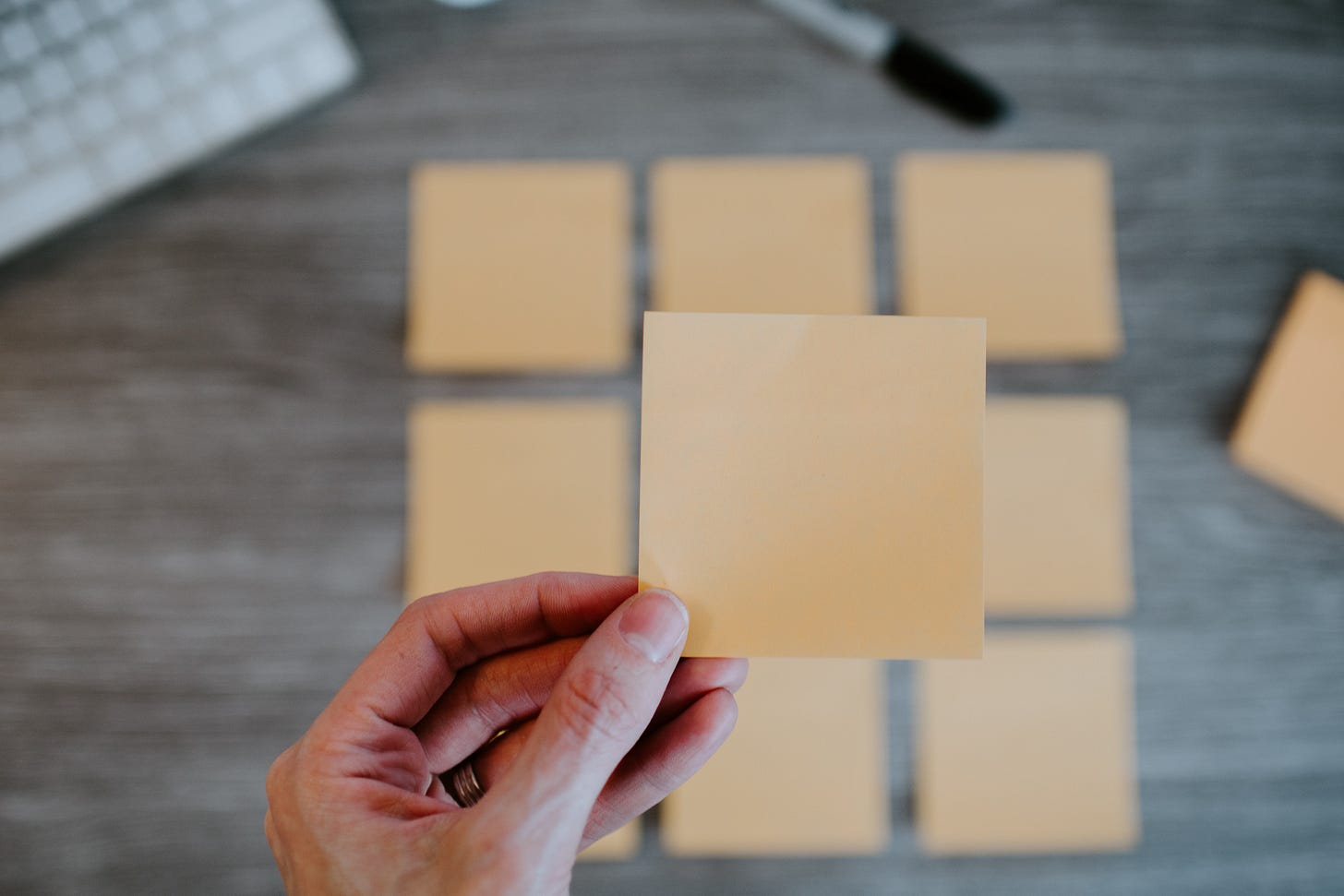How healthy is your Information Diet?

How was your weekend? And how on earth is it nearly the end of July?!
I’ve been thinking recently about the information I consume and whether it’s working for or against me. So in today’s email, I’m sending some questions your way to make you think. Have a great start to your week and enjoy!
One thought: What are you consuming? 🍕🍏

We’re very lucky to live in developed countries where we have access to supermarkets. We have brands offering similar products, trying desperately to be the cheapest or the most appealing to get our money.
We go down the aisles with our trolleys with the luxury of choice.
We can put anything into our baskets. We may opt for a balanced trolley of healthy food and also some treats. Or, when the temptation is too strong, we can stuff our trollies full with snacks, desserts, and empty calories which will be nice in the moment but won’t work for us in the future to align with our goals.
Let’s talk about your Information Diet.
The information you take in every day follows a very similar pattern. Just like battling the temptation for indulging in certain foods, it’s very easy to consume poor information. And just like our diets, it’s important to have balance and to apply moderation.
So, how healthy is your Information Diet?

I want to allow subjectivity here, so I am not going to list what I believe are healthy and unhealthy information choices. But I do believe that social media can be a place for both. You can have a social media feed that inspires you, or you can log in and lose hours scrolling with no recollection of what you actually looked at or consumed.
We also all enjoy different pastimes. I do not want to say reading magazines or looking at clothes online are negative pastimes. I mean I spent approximately 4 hours on my Fantasy Football team this weekend to try and win a mini-league I am in (It didn’t work).
It all comes down to a balanced plate.
It’s for each of us to consider if we are happy with the information we are consuming on a weekly basis. If we are - that’s great! If we think we could cut down in some areas, then how can we go forward and implement this?
For example, reading fiction to switch off from your screens and to unwind before bed is time well spent. Having a laugh with friends, which includes a little bit of gossiping, isn’t negative, we are social animals! Spending 4 hours on Fantasy Football is… OK maybe I didn’t need to do that…
Again, the 80/20 rule comes to mind.
If 80% of the information we consume works for us in: expanding our thoughts, broadening our perspectives and inspiring us with new ideas, then what we do for the minority of our days (20%) can be seen as an enabler.
You need down-time to sustain high-performance. Your 20% of information which is fun, silly and ‘sugary’ allows us to have the bandwidth to learn and consume higher-quality information.
Personally, I don’t think it would be much of a life if we only consumed content that made us learn. If we only did activities under the topics of productivity and personal development, despite my love for these topics. It doesn’t need to be a 100/0 approach. In most circumstances it seems, a balanced 80/20 approach works just fine.

Increase your input to increase your output
It seems that a lot of people want to come up with more ideas and to feel more creative. I like to achieve this by increasing my consumption (input) of inspiring, educational and informative content. If you take the time to read, watch and engage in interesting activities, you’ll become more interesting!
Vary your sources for new perspectives
I think a lot about the types of information I am consuming and the potential benefits of consuming information that is completely new. For example, if we learn across disciplines this might encourage us with some refreshingly new perspectives. For example, you could take a concept from Engineering and apply it to Marketing, instead of only reading about Marketing. How could this look for you?
Consider your default activities
One way to achieve balance may be to consider your default activities. For most of us, we pull our phones out as soon as we get a spare minute. Which does make sense as we have access to information incredibly fast on our phones. It’s efficient, right? So instead of prescribing that we pull out a book instead, which may not always be possible, I’d like to instead probe what the different default activities on our phones could be.
Are we scrolling through Instagram in every spare moment, or could we do something more fruitful, like 20-minutes of language learning in an app? Or could we try and build the habit of creating as a default activity instead of consuming. For example, writing down your present thoughts in Notes, writing short stories to practice writing skills, or calling an old friend for a long-overdue catchup.
I hope this newsletter can provide you with weekly food for thought!
Talk soon,
Joe
Content tip of the week 🚀

Article of the week ✍️
How to Create 64 Pieces of Content In a Day - Gary Vaynerchuk
I’ve been speaking a lot recently about re-purposing content and getting creative to turn single ideas into several posts. Gary Vee is the OG for this! Everyone should check out this slide deck, as you do need to post on social media at a sufficient volume to begin to see results!
This Week’s YouTube Video - Subscribe here! 🎥

I’m Joe, a content marketer passionate about personal development and psychology. Every Sunday, I write an email newsletter with 1 thought, 1 content tip and 1 article I’d recommend. Usually, I go over-board and provide a little more 😁
Add me on LinkedIn + subscribe to my YouTube channel for LinkedIn tips!



